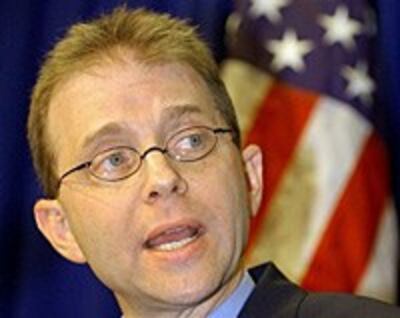
WASHINGTON—The United States is expected to accept up to 200 North Korean asylum-seekers this year despite the unique difficulty of conducting required background probes into refugees from the world's most tightly closed country, a U.S. source has told RFA's Korean service.
Under the 2004 North Korean Human Rights Act, North Korean nationals may seek U.S. asylum even though South Korea considers North Korean refugees to be South Korean nationals.
The U.S. source, who asked not to be named, said Washington hasn't yet accepted a single North Korean refugee because of the extensive investigations required by the federal Department of Homeland Security.
North Korean refugees are most likely to seek asylum in the United States by transiting through Southeast Asian countries, the source said, since China—to which thousands of North Koreans have fled in secret—doesn't allow North Koreans to flee to the United States from inside the country.
We will consider any North Koreans brought to our attention by the U.N. High Commissioner for Refugees, by U.S. embassies and consulates, and by reputable nongovernmental organizations.
U.S. officials expect they could process up to 200 North Korean asylum applications this year, the source said.
'A new undertaking'
A State Department official said Washington is ready to begin processing North Korean asylum applications, adding that the procedures for North Koreans would be the same as for nationals from other countries.
“We will consider any North Koreans brought to our attention by the U.N. High Commissioner for Refugees, by U.S. embassies and consulates, and by reputable nongovernmental organizations,” the official said.
U.S. officials are working now on how exactly to go about processing North Korean asylum applications. “It's a new undertaking,” the State Department official said, noting that U.S. refugee processing abroad requires the consent of the host country.
Michael Horowitz, a senior fellow at the Washington-based Hudson Institute and an influential U.S. conservative on North Korea policy, suggested to reporters here that the U.S. might be expected to process far more than 200 applications this year.
Envoy to press harder
U.S. Secretary of State Condoleezza Rice told a congressional panel last week that Washington would make its North Korea human rights envoy more active in pushing other countries to speak out on the issue.
Speaking to the House of Representatives International Relations Committee, she also said Washington and Seoul disagreed on how to address North Korean human rights abuses, with Seoul balking at the prospect of raising the issue publicly.
Jay Lefkowitz was named U.S. President George Bush’s point man on North Korean human rights issues in August last year. “We are going to get him out more. We need the rest of the international community to also pay attention to this issue,” the secretary said.
Original reporting by Sungwon Yang for RFA's Korean service. Edited by Changsop Pyon. Korean service director: Jaehoon Ahn. Written and produced for the Web by Sarah Jackson-Han. Translation by Yoonji Choi.
